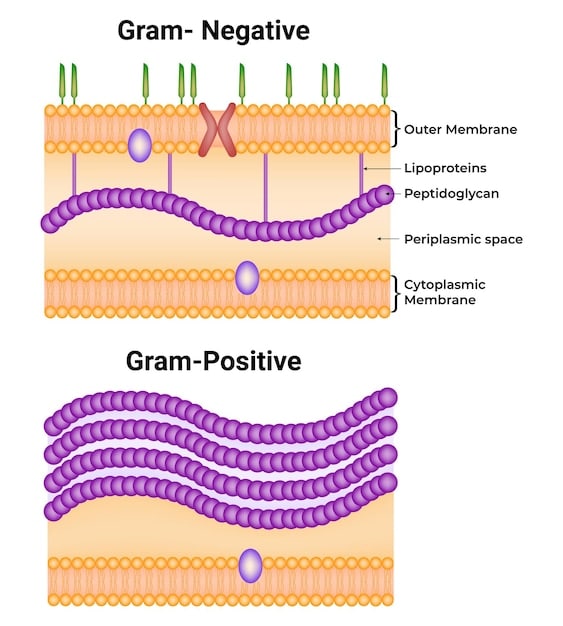Understanding Skin Barrier Function: Radiant Skin by 2026

Understanding skin barrier function is essential for achieving long-term skin health. By 2026, innovations will highlight the need to protect this layer.
Healthy, radiant skin starts with the skin barrier. Mastering how to strengthen and preserve it is key to unlocking visible and lasting results.
Let’s dive into the critical details behind skin barrier care. Learn how to build stronger, more resilient skin through informed routines and products.
What is the Skin Barrier?
The skin barrier, or stratum corneum, forms the outer layer of your skin. It blocks out aggressors and retains hydration for skin function.
Its role is to protect your body and prevent dehydration. When intact, it shields you from pathogens and irritants in your environment.
A strong skin barrier supports your overall skin health. Understanding this foundation helps build better, more targeted skincare habits.
Importance of the Skin Barrier
The skin barrier protects against external damage. It defends your body from pollution, microbes, and allergens that affect skin quality.
It plays a major role in hydration retention. When functioning well, it prevents water from escaping through the skin surface.
Keeping this layer healthy enhances comfort and appearance. It reduces inflammation and makes your skin more resilient over time.
Key Components of the Skin Barrier
The skin barrier is composed of several key components, including:
- Lipids: Ceramides, cholesterol, and fatty acids that form a waterproof layer.
- Natural Moisturizing Factors (NMFs): Substances like amino acids, PCA, and lactates that attract and bind water.
- Skin Cells (Corneocytes): Flattened, dead cells filled with keratin that provide structural support.

These elements maintain a well-functioning shield. Without them, your skin becomes vulnerable to damage and dehydration.
Factors That Damage the Skin Barrier
Damage to your skin barrier can occur easily. It’s caused by external forces and habits that weaken its protective layers.
Knowing what harms your skin helps you protect it. Preventive care starts by identifying triggers and adapting your routine.
Addressing harmful factors ensures long-term health. Proactive choices support skin restoration and defense every day.
Environmental Factors
Your environment can put stress on your skin. Constant exposure to UV rays and pollution wears down natural defenses.
- UV Radiation: Prolonged exposure to sunlight can break down collagen and elastin, weakening the skin barrier.
- Pollution: Exposure to pollutants like smog and particulate matter can cause inflammation and oxidative stress.
- Harsh Weather: Extreme temperatures, low humidity, and strong winds can strip the skin of its natural oils.
Managing environmental risks reduces long-term damage. It also preserves your skin’s ability to retain moisture and heal.
Lifestyle Factors
Lifestyle choices also impact skin barrier strength. Poor skincare habits and diet deficiencies increase irritation and sensitivity.
-
Over-Exfoliation: Excessive scrubbing or use of harsh exfoliants can remove essential lipids and damage skin cells.
-
Harsh Cleansers: Soaps and cleansers with high pH levels can disrupt the skin’s natural balance and strip away protective oils.
-
Poor Diet: A diet lacking in essential nutrients can impair the skin’s ability to repair and regenerate.
Smarter lifestyle changes reduce damage risk. Support your skin from the inside out with balanced daily habits.
Signs of a Damaged Skin Barrier
Recognizing signs of damage is the first step to recovery. Symptoms often appear gradually and can worsen without action.
You might notice dryness, redness, or discomfort. These signals indicate your skin needs gentler care and hydration.
Prompt treatment helps your skin bounce back. Early repair avoids long-term issues like inflammation or aging signs.
Common Symptoms
Watch for common signs of barrier distress. These symptoms show your skin’s natural shield is under stress.
-
Dryness and Dehydration: Skin feels tight, flaky, or rough.
-
Redness and Inflammation: Skin appears irritated, inflamed, or prone to rashes.
-
Sensitivity: Skin reacts easily to skincare products or environmental factors.
-
Itchiness: Persistent itching, even without visible signs of irritation.
Listening to your skin helps guide your care. Adjusting your routine early makes a noticeable difference.

Long-Term Effects
Ignoring damage leads to worsening problems. Over time, the skin loses its ability to defend and renew.
-
Eczema and Dermatitis: Increased susceptibility to inflammatory skin conditions.
-
Premature Aging: Accelerated development of fine lines and wrinkles due to decreased collagen production.
-
Acne Breakouts: Imbalance in skin’s natural defenses leading to clogged pores and acne.
Staying ahead of issues avoids lasting effects. Timely care prevents damage from becoming chronic.
How to Protect the Skin Barrier
Protecting your skin starts with gentler care. Avoid products and habits that strip or irritate the surface.
Focus on hydration and reinforcement. A consistent routine with the right products strengthens your skin daily.
Good habits today prevent future sensitivity. A healthy barrier leads to long-lasting comfort and radiance.
Gentle Cleansing
Choose cleansers that don’t disrupt balance. Aim for formulas that are mild yet effective at removing debris.
-
Sulfate-Free: Avoid harsh sulfates like SLS and SLES that can strip the skin of its natural oils.
-
pH-Balanced: Choose cleansers with a pH level close to the skin’s natural pH (around 5.5).
-
Fragrance-Free: Opt for products without added fragrances to minimize the risk of irritation.
Cleansing the right way prevents damage. A gentle base sets the tone for barrier-friendly routines.
Hydration and Moisturizing
Hydration keeps your barrier flexible. Moisturizers add and seal in essential moisture for healing.
-
Humectants: Ingredients like hyaluronic acid and glycerin that draw moisture from the environment to the skin.
-
Emollients: Substances like shea butter and natural oils that soften and smooth the skin.
-
Occlusives: Ingredients like petrolatum and beeswax that create a protective barrier to prevent water loss.
Apply consistently to maintain softness. Rehydrating regularly defends against daily environmental stress.
Sun Protection
UV rays weaken barrier strength. Daily sunscreen helps maintain hydration and reduces aging effects.
Choose SPF 30 or higher and use it year-round. Protecting against sun damage is essential for healthy skin.
Reapplying ensures steady defense. Don’t skip it, even during overcast or indoor days.
Ingredients That Strengthen the Skin Barrier
Some ingredients actively rebuild your barrier. These substances repair damage and reinforce natural structure.
Using the right actives speeds up recovery. Look for formulas backed by clinical research and skin science.
They also prevent future breakdowns. Consistent application leads to long-term visible improvements.
-
Ceramides: Essential lipids that help to repair and reinforce the skin’s natural barrier.
-
Niacinamide: A form of vitamin B3 that reduces inflammation, improves skin hydration, and enhances barrier function.
-
Hyaluronic Acid: A powerful humectant that attracts and retains moisture, keeping the skin hydrated and plump.
-
Fatty Acids: Omega-3 and omega-6 fatty acids that nourish the skin and support a healthy barrier.
Combining these offers maximum benefits. Build your routine around gentle yet effective combinations.
Future Trends in Skin Barrier Protection (2026)
The skincare industry is moving fast. Innovations will make barrier repair more precise and accessible.
Emerging technologies will personalize care. You’ll be able to target concerns more effectively than ever before.
Staying informed keeps you ahead. Follow these trends to maximize your skincare investment.
Personalized Skincare
Tailored skincare will become mainstream. Products and tools will analyze and adapt to your skin’s needs.
-
DNA-Based Skincare: Products tailored to your genetic makeup for optimal results.
-
AI-Powered Analysis: Smart devices that analyze your skin in real-time and recommend personalized routines.
-
Microbiome Skincare: Products that balance and support the skin’s natural microbiome for improved barrier function.
Skincare will be smarter, not just stronger. Expect personalized solutions in your daily routine.
Advanced Formulations
New delivery systems will boost product power. Ingredients will reach deeper and work more efficiently.
-
Encapsulated Ingredients: Ingredients that are delivered deeper into the skin for maximum efficacy.
-
Biomimetic Lipids: Lipids that mimic the skin’s natural structure to reinforce the barrier more effectively.
Better formulations mean faster results. Look for next-gen skincare in your favorite brands.
Sustainable Practices
Sustainability remains a top priority. Eco-conscious consumers are driving change in how products are made.
-
Eco-Friendly Packaging: Brands will increasingly adopt sustainable packaging materials to reduce environmental impact.
-
Ethical Sourcing: Emphasis on ethically sourced ingredients and cruelty-free practices.
Choose brands that value ethics. Supporting sustainability also benefits your long-term skincare goals.
| Key Point | Brief Description |
|---|---|
| 🛡️ The Skin Barrier | Outermost layer protecting against external factors and preventing moisture loss. |
| ☀️ Environmental Factors | UV radiation, pollution, and harsh weather can damage the skin barrier. |
| 💧 Hydration | Using moisturizers with humectants, emollients, and occlusives is crucial. |
| 🧪 Key Ingredients | Ceramides, niacinamide, and hyaluronic acid strengthen the skin barrier. |
Frequently Asked Questions
▼
The main functions include protecting against environmental aggressors like UV radiation and pollution, and preventing moisture loss to keep the skin hydrated.
▼
Signs of a damaged skin barrier include dryness, redness, inflammation, increased sensitivity, and frequent irritation or breakouts.
▼
Look for products containing ceramides, niacinamide, hyaluronic acid, and fatty acids to strengthen and hydrate the skin barrier.
▼
Yes, lifestyle changes such as staying hydrated, eating a balanced diet rich in antioxidants, and avoiding harsh skincare habits can improve the skin barrier.
▼
Exfoliate sparingly, no more than once or twice a week, using a gentle exfoliant. Over-exfoliating can damage the skin barrier.
Understanding skin barrier function: how to protect and strengthen it for healthy, radiant skin by 2026 is essential for achieving and maintaining optimal skin health.
By adopting gentle skincare practices, incorporating beneficial ingredients, and staying informed about future trends, you can ensure a resilient and radiant complexion for years to come.





